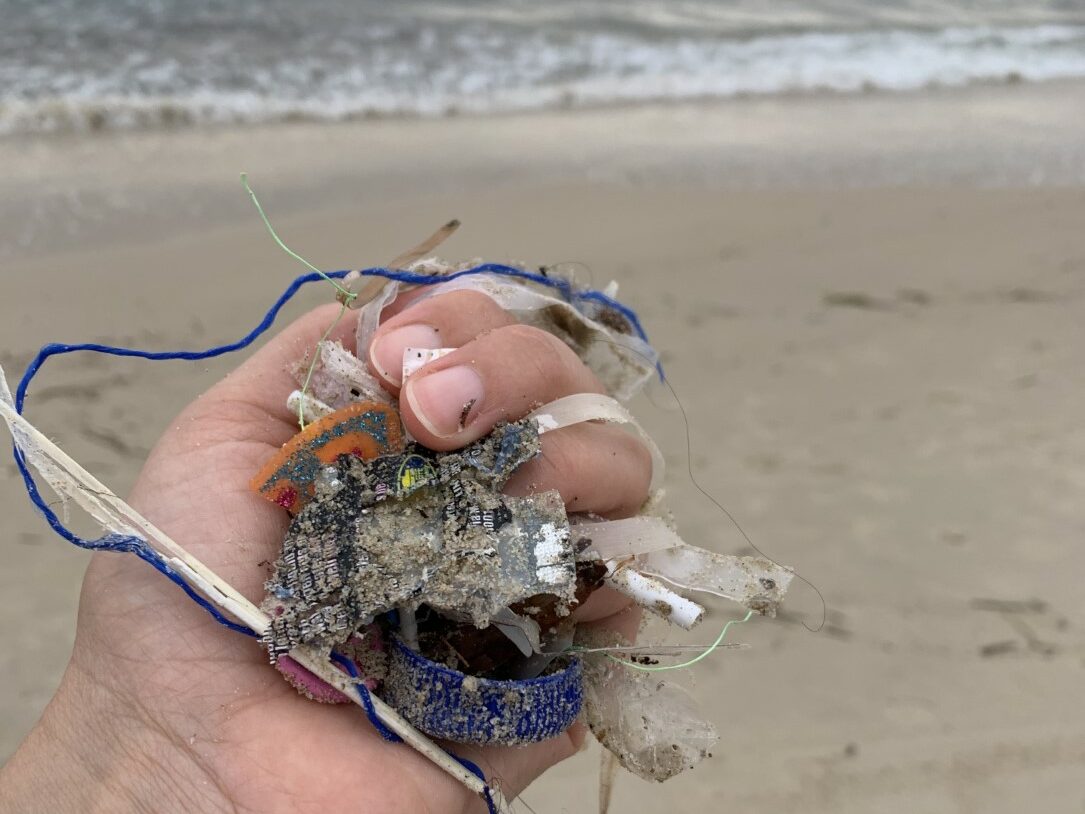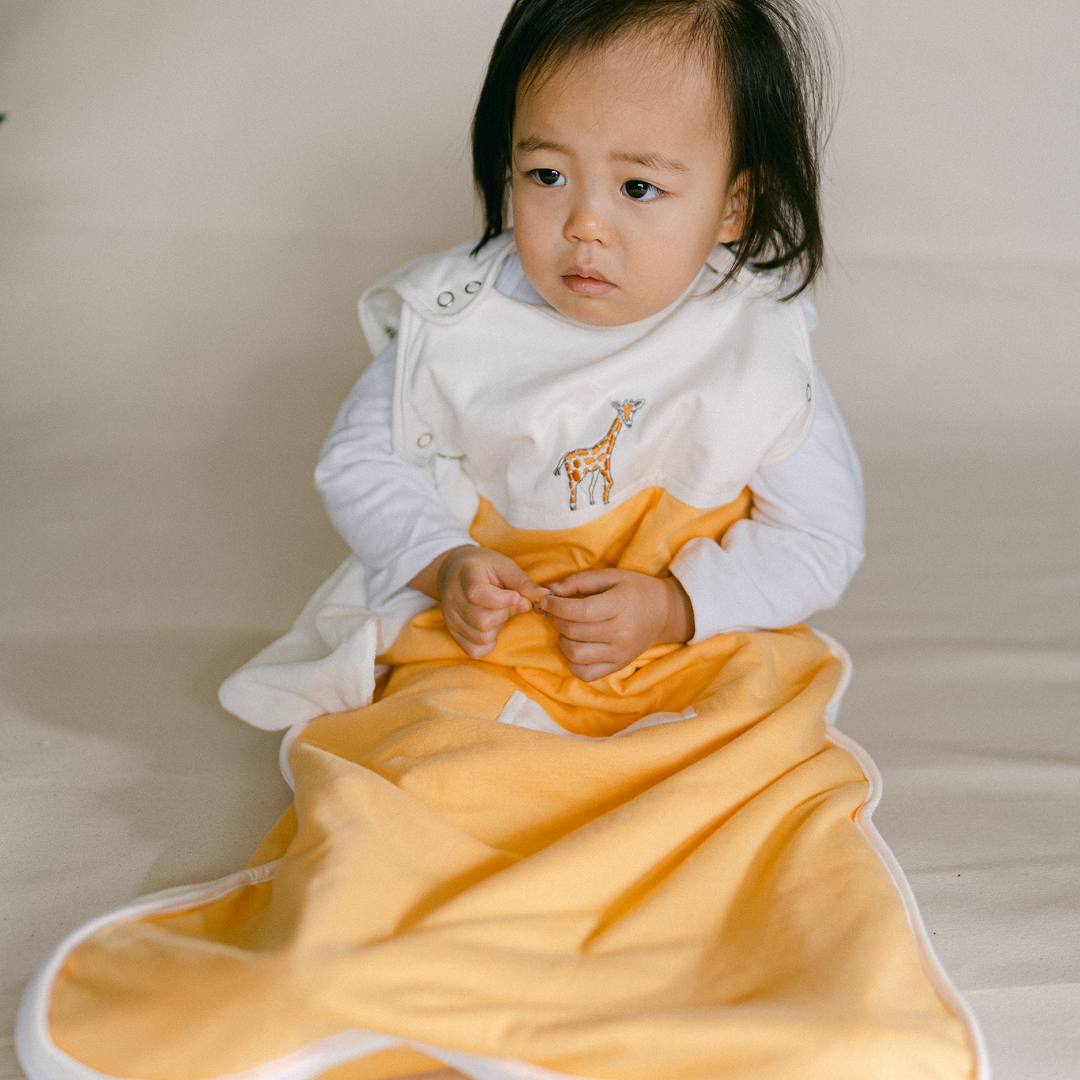MICRO-PLASTICS NOW FOUND IN THE LUNGS OF LIVING HUMANS

This month, another worrying study has found micro-plastics deep inside the lungs of living humans. This follows last months’ discovery of micro-plastics in the blood of 80% of people tested. In both of these studies, PET plastics were amongst the top two plastics found inside the human body. PET plastics are used in water bottles and polyester. Over 98% of all soft toys aimed at small children are made from this harmful and polluting plastic, as well as many other items like blankets, cushions, fleeces etc.
With babies and young children up to 22x more exposed to these toxins than adults, this has become an urgent issue that the human race can no longer afford to ignore.
Read below to take part in our easy and effective Earth Day Micro-Plastic Detox Challenge. We’re also offering 15% off our range of plastic-free children’s products this weekend only, code at the bottom of the article.
NO FISH IN THE OCEANS IN 30 YEARS TIME IF PLASTIC POLLUTION CONTINUES
Plastics and micro-plastics are having a devastating effect on the earth harming our water systems, sea life, insects, animals and human health. David Attenborough has predicted that in 30 years from now, there will be no fish left in our oceans if plastic pollution continues at this rate. So, when our babies are in their early 30s, the oceans will be empty of life. This is one of the most hard-hitting predictions I have heard, as I just can’t imagine that by the time my kids are my age, the oceans will be empty if we don’t make some drastic change so our lifestyles now.
David Attenborough also says: “I see no future in being pessimistic because that leads to say, ‘then to hell with it, why should I care?’ and I believe that way disaster lies. So, I feel an obligation. The only way you can get up in the morning is to believe that, actually, we can do something about it.”
We must all take action and responsibility to turn the tide on plastic pollution in order to ensure our children have a sustainable planet to grow up in. The detrimental impact of micro-plastics on the planet is now widely studied and well understood, but the dangerous effect they are having on human health is a relatively new area of study which is now shining a light on the importance of us acting now to reduce our plastic consumption for the health of our families, as well as our eco systems.
JOIN OUR MICRO-PLASTIC DETOX EARTH DAY CHALLENGE
That’s why we’re setting our Earth Day Micro-Plastic Detox Challenge, to help spread awareness about the dangers of micro-plastics and their prevalence in our daily lives, and to help parents take action in simple and easy steps.

To take part, all you need to do is choose one change from the list below, and make that change before the weekend is out. Share your change on social media using #PECearthdaychallenge and #PlasticFreeBabies.
1. Out with fluffy polyester in your child’s bedroom: Soft toys, fleeces and fluffy polyester blankets are a major source of micro-plastic air pollution in our homes, as well as a key contributor to excess micro-plastic ingestion for small children who tend to suck on toys and fabrics. One of the biggest and quickest changes you can make to reduce the micro-plastics in your child’s environment is swapping out polyester toys for cotton alternatives. Remove any polyester bedding, such as blankets and cushions, and replace fluffy polyester robes and fleeces with something natural. Have a clear out in your child’s bedroom this weekend and let us know what you’ve managed to remove.
2. In with cotton toys and fleeces: Cotton and natural fabrics are a much safer option for the health of babies and the planet. They’re biodegradable and contain a lot less chemicals than fossil fuel fabrics, especially if you opt for organic fabrics. Treat your kids to some new toys this weekend and try to phase out the old synthetic versions over the next weeks and months.
3. Switch to glass feeding bottles and/or stainless steel water bottles: Studies have shown that bottle fed babies ingest up to 1.6 million micro-plastics per day, and plastic water bottles expose children to thousands of plastics and chemical particles per drink. Switching to glass feeding bottles and stainless steel water bottles is a quick and easy swap you can make today to significantly reduce your child’s exposure to these toxins. If you’d like some recommended brands, we love Hevea or Life Factory for glass feeding bottles and Kleen Kanteen for drinking bottles, but there are other great brands making similar products too.
4. Stop putting plastic kitchenware in the dishwasher: If you don’t want to commit to buying anything new, or swapping out old plastic items in your house, this one’s for you. Simply hand wash all plastic items in your kitchen instead of putting them in the dishwasher. Studies have shown that micro-plastics are shed much faster when items are exposed to the high heat and intensive washing cycle of the dishwasher.
5. Hoover and dust more often and open windows: This is another really simple and effective way to detox your home of micro-plastics. Chemicals and micro-plastics build up in the air inside our homes and in household dust. Children are more exposed to dust due to their faces being closer to the ground, and their general habits playing on the floor, dropping toys and snacks and sucking on things that they shouldn’t. Opening windows regularly and keeping dust at bay has been shown to massively reduce toxins and micro-plastics in the home.
So our challenge is simple. Choose one (or more) of the things above and share your swap on social media using #PECearthdaychallenge and #PlasticFreeBabies. Help spread awareness about the rising dangers of micro-plastics and encourage others to take action to create a better and safer tomorrow for our kids.
15% OFF OUR PLASTIC-FREE PRODUCTS TO CELEBRATE EARTH DAY
We’re also offering 15% off across our store until Sunday night to help encourage people to shop for safer, plastic-free products for their kids. Use code EARTHDAY before midnight on Sunday 24 April (2022) to claim your discount.
You can find more information on the dangers of micro-plastics and how to reduce your family’s exposure over on our Plastic Free Babies page.
T&Cs apply: Discount code cannot be used in conjunction with other discount codes or sale/discounted items.
